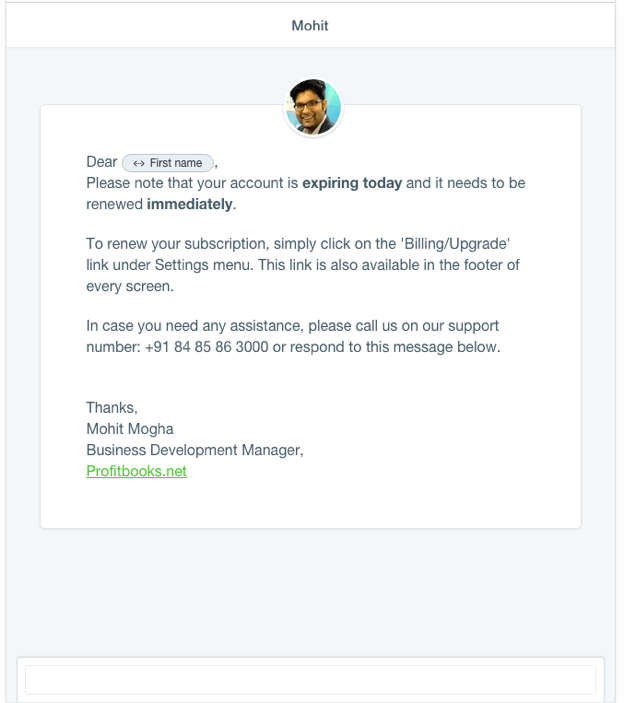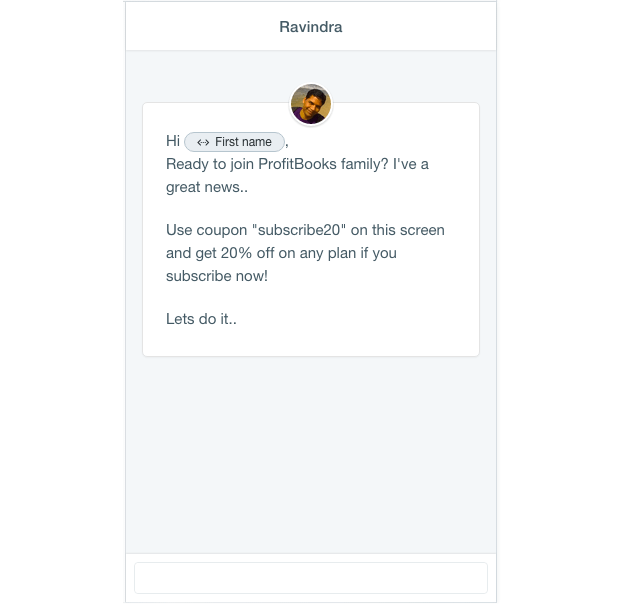
How ProfitBooks used Intercom to increase renewal rates by 40%
When accounting software startup ProfitBooks grew to more than 1,000 customers in a matter of weeks, things got hectic. Like many resource-strapped startups, ProfitBooks added different tools to engage and talk to their users, resulting in debt and waste.
Harshal Katre, founder and director of ProfitBooks, tells the story of how his company worked its way through four separate point solutions to handle customer support, feature requests, customer communications and sales, before replacing them all with Intercom.
We started offering cloud accounting software in the Indian market in 2012. Within a year, we had acquired thousands of users and found ourselves ill-prepared to scale our support and marketing efforts. So we did what most fast-moving startups in our position do. We added different tools to manage different tasks, like email marketing and support, and we tried building a CRM ourselves. Oddly, our customers were barely talking to us and we couldn’t figure out why. Then we installed Intercom to do email marketing, support, and sales engagement, and we discovered two things that were like music to our ears:
Discovery #1: People want to talk to us
In the beginning we used Zendesk for support. Customers could contact us either by sending a mail to our support ID or by visiting our Zendesk portal and creating a ticket. I can count on on hand the number of people who actually used this system to send us an issue. We knew there were bugs initially with our software, but where were the questions?
With Intercom, customer support became easy and personal. Our customers could simply click on the question mark icon and send us a message and immediately our message volume went up 15 times. I know it sounds overwhelming, but we weren’t worried with this volume because apart from support queries, we receive valuable feedback and suggestions for new features.
The development roadmap at ProfitBooks is entirely driven by the user feedback. Intercom helps us to manage this feedback in a more action oriented way. If there are large number of conversations linked to one specific feature request, we prioritize it. Thanks to Intercom, we were able to stop using Asana to track requests.
When we receive feedback through Intercom we tag the message as “Feature Request” or “Defects.” From there we can easily prioritize what to build, and someone from sales can follow up with tagged users to let them know we’ve fulfilled their request. It’s a nice, simple way to develop a positive relationship.
Discovery #2: People want to pay us money
Sending email to our customers was a time-consuming activity for us and sometimes required precious engineering time. It involved exporting customer email addresses to a spreadsheet, sorting the data, and then importing it all into Mailchimp. We only sent customer communications once a month.
Intercom’s automessage feature was a godsend. We non-engineers could quickly create customer segments based on their subscribed plan and usage and import custom events.
For example, we send automated mails to customers who haven’t logged into their accounts in the past 30 days or when they haven’t used a feature after 10 sessions. Through simple targeting, our open rates are now around 45%; previously they were closer to 7%. We can also track if this message leads to increased logins, thanks to enhanced message goals. Not bad for a message that took a couple minutes to create.

One of the most fascinating discoveries we’ve made since turning on automessages is how much they can impact our bottom line. Automated emails that took literally minutes to create have reaped an incredible return on investment. For instance, we’ve seen a 40% increase in customer renewal rate, thanks to a payment reminder message sent one day before expiration of their accounts:

Another message with good ROI is this email we send to customers who churned after their free trial. We’ve converted 18% of these customers with this promo:

All-in-one platform
Lessons learned? A great product, team, and business model simply aren’t enough. You need the right communication tool to move fast and effectively as you scale. Intercom has helped us immensely improve user onboarding and increase user engagement. Now, customer support is one of the things that differentiates ProfitBooks from our competitors.






